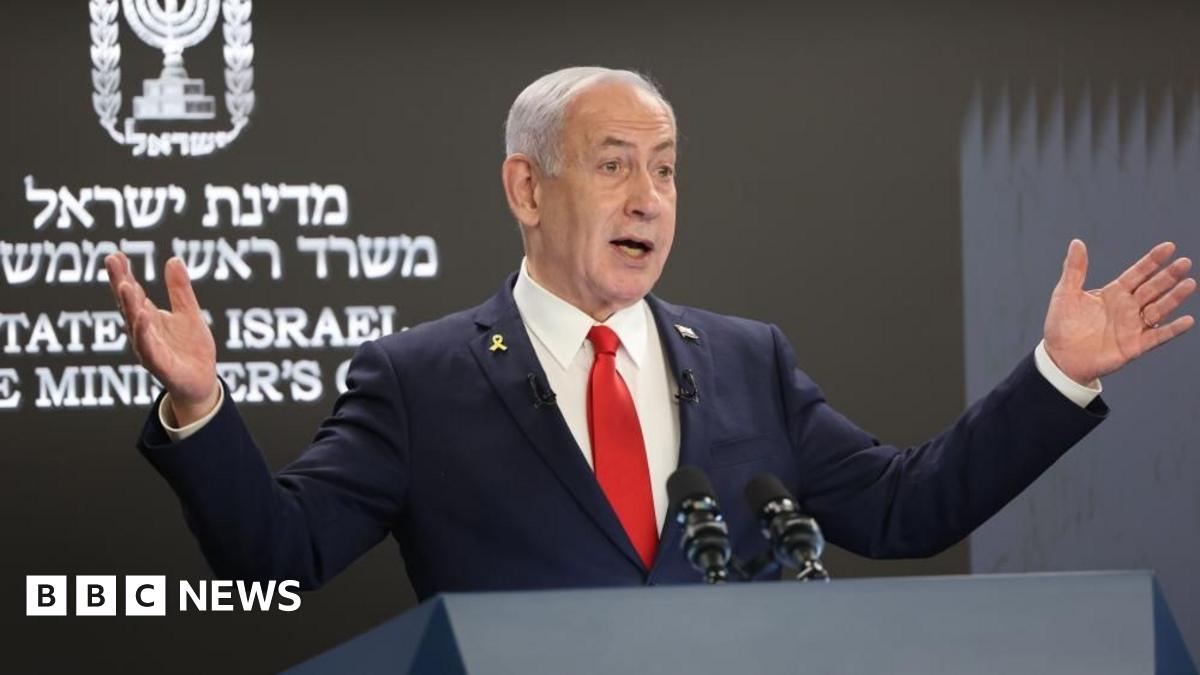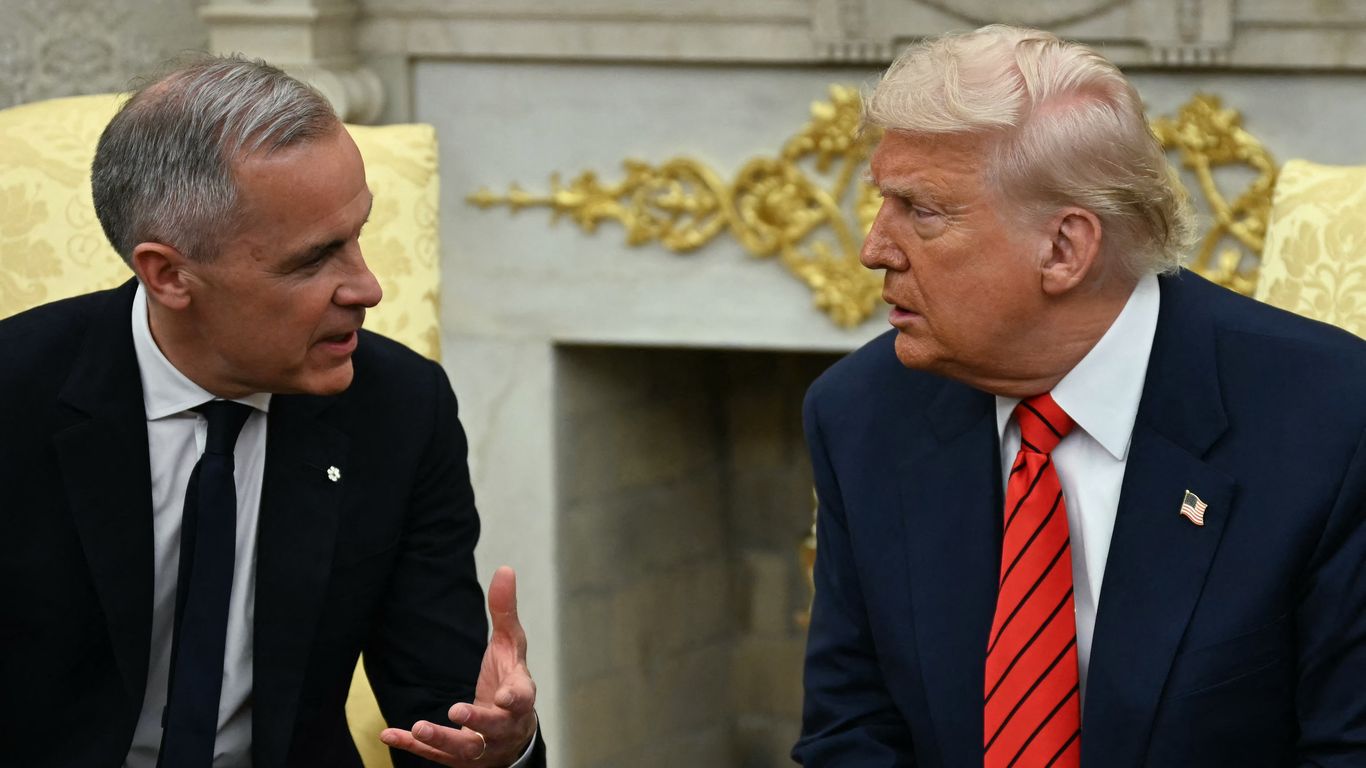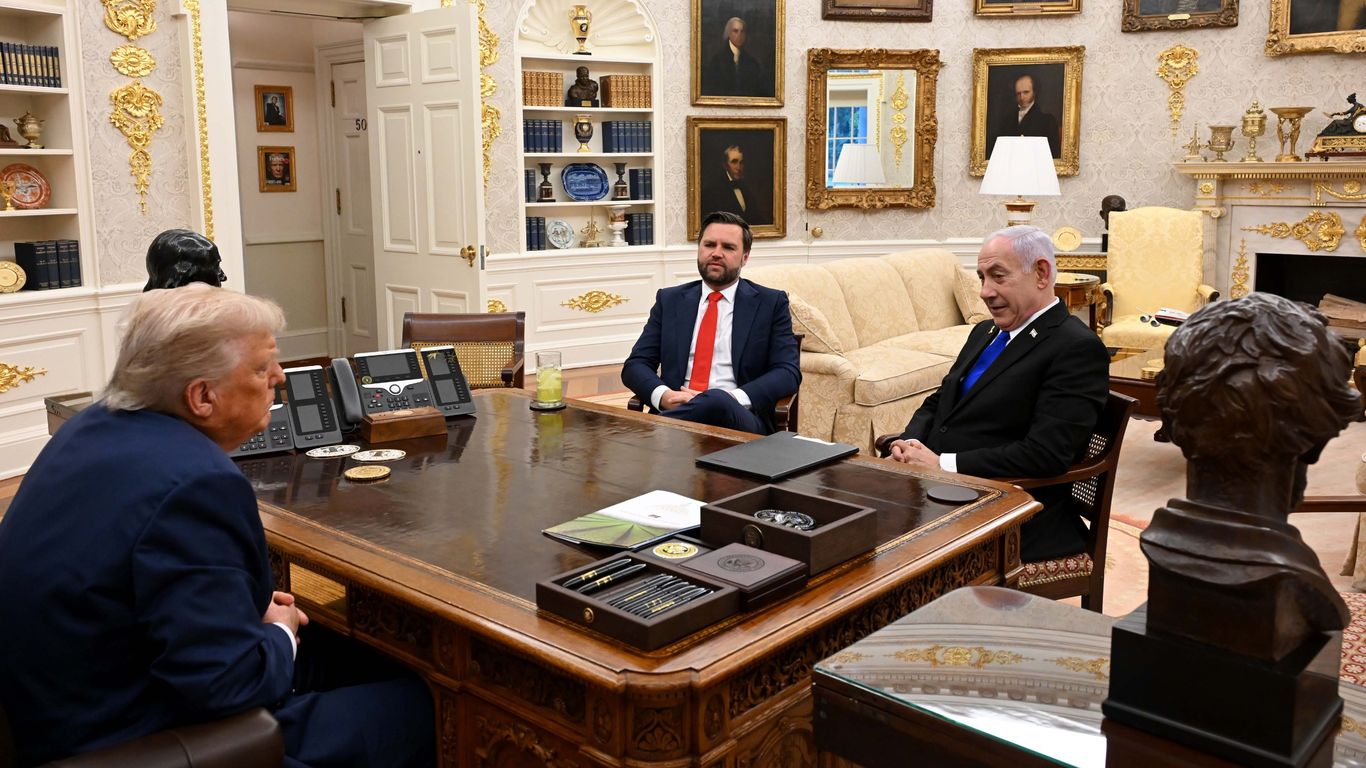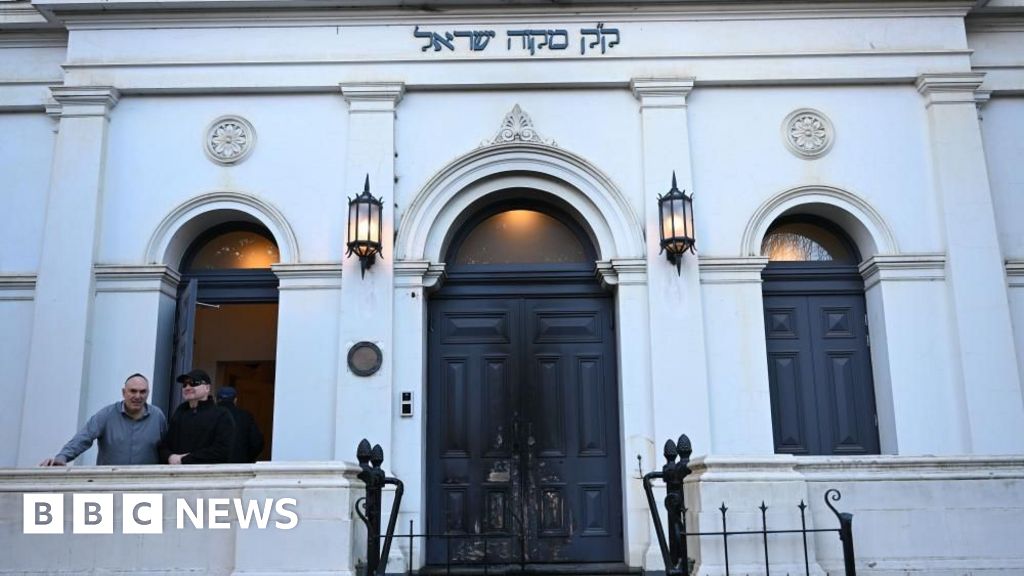Australia Recognizes Palestinian State, Isolates US
#australia #palestine #us #conflict #international_community

Introduction
The decision by Australian Prime Minister Anthony Albanese to recognize a Palestinian state in September has once again brought the focus back on the ongoing conflict between Israel and Palestine. This move by Australia has further isolated the United States, a key ally of Israel, as more and more Western nations join in condemning Israel's actions in Gaza.
Key Details
Australia's recognition of a Palestinian state comes as a result of the ongoing violence and human rights abuses in Gaza by Israel. This move has been welcomed by many countries and has been seen as a step towards a more balanced and just resolution of the conflict. The international community has been increasingly vocal in their criticism of Israel's actions and this decision by Australia is a testament to that.
Impact
The recognition of a Palestinian state by Australia not only highlights the growing support for Palestine but also puts pressure on the United States to reconsider its stance on the conflict. This move has the potential to shift the power dynamics in the region and could lead to a more peaceful and just resolution of the conflict. It also sends a strong message to Israel that the world is watching and will no longer turn a blind eye to their actions.
About the People Mentioned
Anthony Albanese
Anthony Albanese, born on March 2, 1963, in Sydney, Australia, is an Australian politician serving as the 31st Prime Minister of Australia since May 23, 2022. He is a member of the Australian Labor Party and has represented the Sydney seat of Grayndler in Parliament since 1996. Albanese grew up in public housing raised by a single mother on a disability pension, a background that shaped his commitment to social equity and government support for disadvantaged Australians[2][5][8]. Albanese held several significant roles before becoming Prime Minister, including Minister for Infrastructure, Transport, Regional Development, and Local Government (2007–2010), during which he oversaw major nation-building projects such as roads, railways, and the National Broadband Network rollout, contributing to economic growth and improved connectivity across Australia[2][3]. He briefly served as Deputy Prime Minister in 2013. After the Labor Party’s electoral defeat in 2013, he continued in opposition and was elected leader of the Labor Party and Leader of the Opposition in May 2019, running unopposed[1][3]. As Prime Minister, Albanese’s government has pursued progressive policies including environmental protections, aiming for a 43% reduction in emissions by 2030, increased minimum wage, expanded support for workers, subsidized childcare, aged care reforms, and paid leave for domestic violence victims. His administration also donated $100 million in aid to Ukraine during the Russia-Ukraine conflict and restored diplomatic relations with China after a long freeze, marked by a key meeting with Chinese President Xi Jinping[1][4]. Albanese advocates for Indigenous recognition through a constitutional referendum to establish a Voice to Parliament, a move toward reconciliation with Aboriginal and Torres Strait Islander peoples[4]. Albanese is noted for his progressive stance on social issues, including support for abortion rights, drug decriminalization, same-sex marriage, transgender rights, and refugee acceptance. He has also emphasized strengthening Australia’s economic and military ties with Europe and the United States[1][4].
About the Organizations Mentioned
United States
The **United States** is a federal republic and a global superpower, playing a leading role in economics, military strength, technology, and governance. It is a nation of approximately 348 million people as of 2025, characterized by its diverse population and dynamic economy[8][6]. Founded in 1776 following independence from British rule, the U.S. rapidly evolved into a major world power, especially after World War II, when its technological and economic investments solidified its global dominance[4]. Today, it remains the world’s preeminent military power, with 76% of Americans recognizing this status, while about half view it as the leading economic power globally, though China is seen as a rising competitor[2][3]. The U.S. government operates through a complex system that manages federal finances, taxation, social welfare programs, and trade policies. Recent legislative changes, such as the 2017 Tax Cuts and Jobs Act and the 2025 One Big Beautiful Bill Act, have shaped the tax landscape to influence economic growth, labor markets, and federal revenue[1]. Despite challenges like rising federal deficits projected to reach 6.9% of GDP by 2027, consumer spending remains resilient, and business investment is expected to grow steadily in 2025[5]. In governance, the U.S. is rated "Free" with a score of 84/100 by Freedom House, though concerns about democratic erosion and partisan conflicts persist[6]. Public trust and satisfaction with government services fluctuate, reflecting ongoing debates about policy effectiveness and institutional competence[7]. Technologically, the U.S. maintains a critical edge, underpinning its economic and geopolitical power. Experts warn, however, that technological dominance is not guaranteed indefinitely, emphasizing the need for adaptive policies and international cooperation to sustain leadership in innovation and global affairs[4]. Overall, the United States remains a pivotal force in global business, technology, and politics, balancing historic strengths with contemporary challenges in
Israel
Israel is a highly developed democratic country in West Asia, known for its advanced free-market economy and significant contributions to global business and technology sectors. Established in 1948, Israel has grown into a regional powerhouse with a population of approximately 9.5 million as of 2025. It is the only country with a Jewish majority population and operates under a parliamentary democracy with strong political rights and civil liberties[2][5]. Israel's economy is among the most sophisticated in the Middle East, ranked 25th globally by nominal GDP according to the IMF in 2025. It boasts the second-largest number of startups worldwide, only behind the United States, and the third-largest number of companies listed on NASDAQ after the U.S. and China. This vibrant tech ecosystem attracts major multinational corporations such as Intel, Microsoft, Apple, IBM, Google, and Facebook, all of which have established research and development centers in Israel, often marking their first overseas R&D presence there[1]. The country’s main economic drivers include high-tech industries, industrial manufacturing, and diamond cutting and polishing, with the diamond sector accounting for 21% of exports in 2017[1]. Israel’s technological innovation extends to energy, with recent discoveries of natural gas reserves and a growing solar energy industry aiming to reduce dependency on imports[1]. Despite its small size, Israel's infrastructure rivals developed nations, supported by a sophisticated welfare state and a powerful military known for advanced capabilities, including nuclear weapons[1]. Regionally, Israel faces ongoing geopolitical instability and conflict, which influence its security policies and international relations. Internal and external tensions persist, particularly regarding the Palestinian territories, impacting both domestic and foreign policy dynamics[3][4]. Public opinion within Israel reflects concerns about international respect and peace prospects[6]. Overall, Israel stands out as a dynamic hub of innovation, economic resilience, and geopolitical significance, making it a critical player in global business and technology news.
Western nations
The term "Western nations" often refers broadly to countries in Western Europe and other regions that share similar political, economic, and cultural ties. A key organization associated with this concept is the **Western European and Others Group (WEOG)**, a United Nations regional group. ## Organization Overview WEOG is one of the five UN regional groups, comprising 28 member states, including countries from Western Europe, North America, the Eastern Mediterranean, Fennoscandia, and Oceania. The group also includes observer states like the United States and the Holy See (Vatican City). WEOG is unique in that its membership is not solely based on geography but also on geopolitical alignments, focusing on developed liberal democracies and members of the NATO military alliance or the US-led Western economic community[1][3]. ## Functions and History WEOG serves as a non-binding dialogue platform for discussing regional and international issues. It plays a crucial role in nominating candidates for UN bodies, helping to allocate seats in UN organs like the Economic and Social Council and the Human Rights Council[1]. The group's history is tied to the broader development of the UN, which was established in 1945 with the aim of promoting international cooperation and peace. ## Key Achievements WEOG's achievements include facilitating representation in UN bodies, such as holding 13 seats on the Economic and Social Council and 7 seats on the Human Rights Council[2]. The group's ability to coordinate on substantive issues has been instrumental in shaping international policy and promoting democratic values. ## Current Status Currently, WEOG continues to play a significant role in UN affairs, with its members participating actively in various UN councils. The group's rotating chairmanship allows for diverse leadership perspectives, enhancing its effectiveness in international diplomacy[3]. ## Notable Aspects A notable aspect of WEOG is its diverse membership, which extends beyond Europe to include countries like Australia, Canada, Israel, and New Zealand
Australia
Australia—officially the Commonwealth of Australia—is a sovereign nation, not an organization in the conventional business sense, but as a country, it functions as a complex, interconnected system of governance, economy, and society with a global footprint. As a constitutional monarchy and parliamentary democracy, Australia is a federation of six states and ten territories, with a highly urbanized population of nearly 28 million, concentrated along the eastern seaboard[7]. Its capital is Canberra, while Sydney and Melbourne are its largest and most economically significant cities[7]. ## History and Governance Australia’s modern history began with British colonization in 1788, evolving into a federation in 1901. Today, it is recognized as a stable, democratic, and culturally diverse nation with a robust rule of law and high levels of public trust in government—46% of Australians express high or moderately high trust in the national government, above the OECD average[3]. The country’s governance is characterized by a commitment to transparency, efficiency, and public service, with 68% of citizens satisfied with administrative services[3]. ## Economic Profile and Achievements Australia boasts one of the world’s strongest performing economies, underpinned by abundant natural resources, advanced technology sectors, and a highly skilled workforce[1][7]. The economy grew by 1.3% in the 2024–25 financial year, rebounding from weather-related disruptions earlier in the year[2]. Key drivers include mining, agriculture, education, and financial services. The country is a global leader in innovation, particularly in renewable energy, medical research, and fintech. Australia’s trade relationships are vital, with China, the United States, Japan, and South Korea as major partners. While the U.S. is a significant export destination for Australian agricultural products, potential U.S. tariff changes pose a risk, especially to rural economies[9]. The nation is also a founding member of international groups like the United Nations, G20













